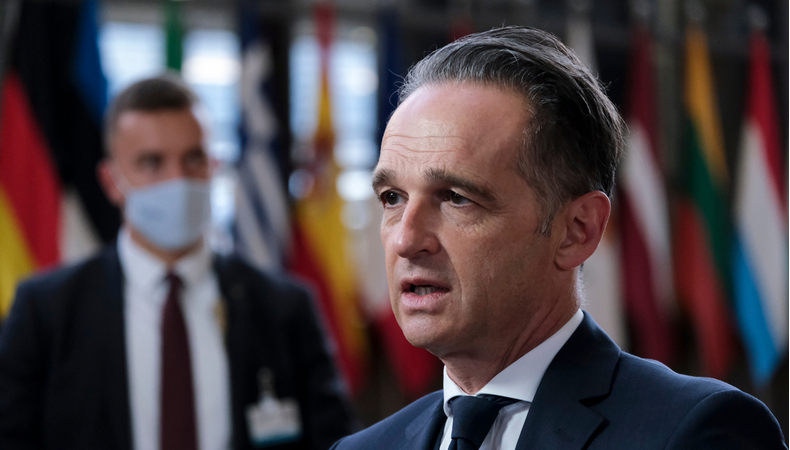Europe returns to Tripoli offering support to Libyans in achieving stability

Three European ministers visited yesterday the Libyan capital Tripoli, a joint mission of Italy, France and Germany to give a signal of unity to Libya and the entire Mediterranean area. Europe therefore return to Libya, seeking to end Turkish hegemony in the western region of the North African country.
For months, the EU countries have not found an agreement, they have supported one or the other of the warring parties in Libya. Except being side-lined by those who really made the war, Russia and Turkey. Now is the time to collaborate, even if interests’ competition between Europeans will still be inevitable. The three foreign ministers mission to Tripoli is a highly symbolic trip, during which they met the new transitional Government of National Unity led by the Prime Minister Abdul Hamid Dbeibah.
For the Italian Luigi Di Maio it is the second time in four days. But after the formation of the government that will lead the country to elections on December 24, the Draghi government has decided to speed up its diplomatic work to consolidate the political framework in Libya. And it has decided to do so first of all with France and Germany, the main European partners involved in the stabilization of the country.
The Italian minister with his French colleague Jean Yves Le Drian and the German Heiko Maas confirmed that the EU is ready to collaborate with Libyan institutions and work towards common goals. These include restarting the economy to relaunch living conditions, the context general social policy for Libyan citizens.
At the same time, this will serve the institutions to work with an eye to a non-immediate future. One of the fears always remains that of migrants smuggling, we are moving towards the summer, towards a moment in which we need the maximum collaboration to be able to manage the issue of migration.”
Read more : Italy tries to return protagonist in Libya with the new executive, Di Maio’s visit shows
The mission of the three ministers has been followed by that of the EU High Representative Josep Borrell, a sign of the EU’s newfound unity on the Libyan dossier, with France, which after the ambiguities related to its support for the general Khalifa Haftar seems to be now fully on the side of the new government. President Emmanuel Macron announced on Monday the reopening of the embassy in Tripoli, closed for seven years, after meeting in Paris with the new President of the Presidential Council Mohammed El Menfi.
During the talks with the new unified executive of Libya, the three EU ministers listened to Prime Minister Dbeibah illustrating the most urgent needs of the Libyan government: first of all, support for the normalization of electricity supplies. For years, the electricity grid and production plants have been abandoned.
Maintenance before the summer is very urgent, and this is what Tripoli is asking from Europe. Blackouts in Tripoli are reduced at this stage, but in the summer,Libyan people also reach 20 hours of darkness, which means having freezers and air conditioners off, unless they live permanently connected to private generators.
The other challenges relate to the COVID-19 vaccination campaign, with numbers increasing in the south and western region of Libya. Furthermore, EU support will be essential in organizing legitimate national elections, which are only 273 days away.Finally, Libya asked Europe for an incisive diplomatic intervention so that all mercenaries, including those sent by Russia and Turkey, immediately leave the country.




